How to learn French for beginners: 7 things no one tells you
Start learning French the right way with these 7 shortcuts every French beginner needs to know. French verbs, grammar and genders become easy when you know this.

Today I’m sharing with you the 7 things that I so wish every French beginner would know. No one tells you these things, but the truth is, if you don’t know & use these seven things, you are setting yourself for a really really rough journey.
So, please do not start learning French before you have let these 7 points really sink in.
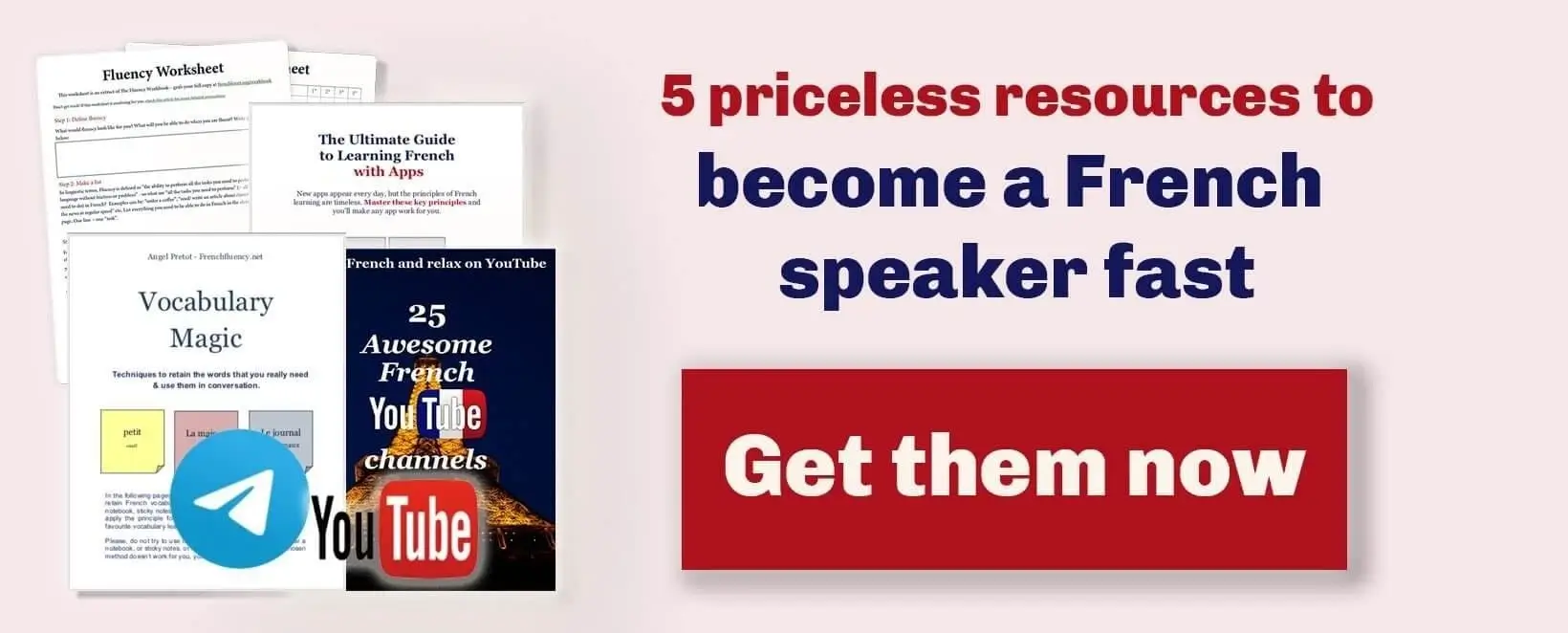
As a French learning coach, I keep seeing intermediate students who come to me for help because they are stuck. The reason why they’re stuck is because they haven’t been doing these for the start.
In fact if you’re not a beginner anymore, I’d still recommend you read this article and make sure you actually use these things in your study.
The best time to do it was when you started learning French, the second best time is now. The sooner you nail these, the faster you’ll get fluent.
Subscribe for more on YouTube!
Learning French is actually a very simple process.
That doesn’t mean that it’s easy, but it’s very simple.
It’s a 4 step process. If you go through those 4 steps, and you keep running those four steps as you progress, you will get fluent.
The four steps spell the following magic formula: “Sel-Act-Im-Safe”
It stands for selection - activation - immersion - safe practice.
These are the four steps or four pillars of language learning. Every single method which works has those four elements built in, whether explicitly or implicitly.
Over the next four points, we’ll see what each steps mean and how
2. What you learn is more important than how you learn it.
The first step is “Selection”.
As Tim Ferriss, author of the Four hour workweek, puts it: “Content beats method every time”.
You need to very carefully select what you learn.
Often French learning methods or classes teach you “general French” according to a selection made by someone else, which isn’t necessarily relevant to you. So you waste a lot of time and effort because the selection isn’t actually done for you.
I use a very simple process with my students to select what is relevant for them personally.
It’s something you can do easily with this free worksheet. It explains to you the steps you need to take to select what is relevant to you. And then it serves as the Roadmap for your French study.
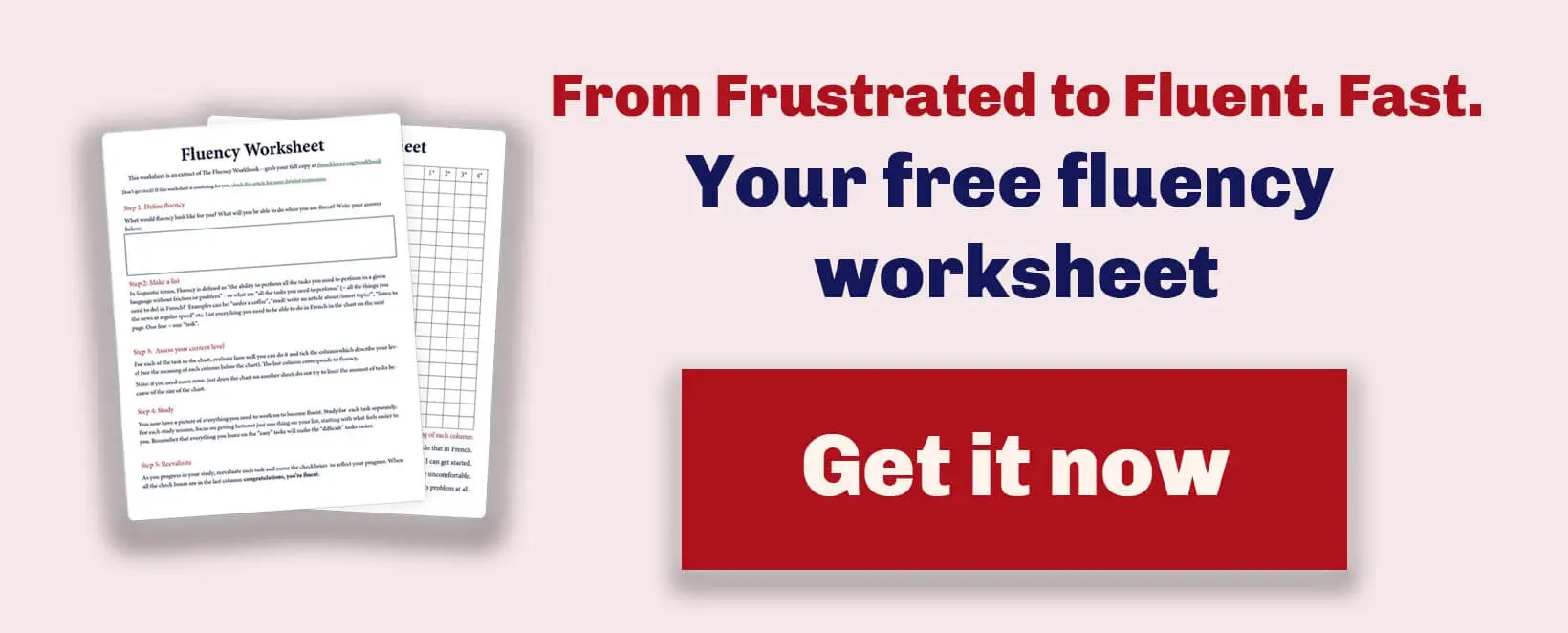
3.“Activate” elements of the language to learn them easily.
The second step of the formula is “Activation”.
Most of your learning can happen subconsciously (see the next step) and smoothly, provided you activate the elements which you have selected.
Your brain contains a very convenient system known as R.A.S (Reticular Activation System). This system constantly filters your environment to select what is important (i.e what you will perceive) and what can “safely” be left out. Its criteria for what is important is whether or not it has seen that thing before and given it importance.
What you have never seen, you typically overlook, unless it looks interesting or threatening (and for that too, the criteria is your past experience).
So when you listen to French, you are very likely to overlook elements of the language which you have never seen, and that would slow down your progress.
The solution is to purposedly activate those elements which you can learn next, so your brain then detects them and learn them.
Concretely, any exercise you do in class or in your homework needs to serve as the activation. Thinking that the exercises are the end-all be-all will hold you back.
The exercises are only supposed to be here to train your brain to start thinking like the French do. Immersion & safe practice (the next two steps) is where it becomes automatic.
4. Most of your learning is subconscious.
The next step is immersion. In order to learn French, you need tons of repetition, but you don’t need to put in a lot of effort. In fact, making lots of effort is counterproductive, as your brain will associate French with an unpleasant experience and start resisting it.
The key to avoid this is to immerse yourself in French language, by listening to audio or watching videos in French about topics you love and are interested in. You can also choose to read books or magazines in French as part of this step.
You need to keep doing this even if you “understand nothing”. How much you understand is not the point. The point is to be immersed in the language and acquire it, similarly to how you acquired your native language.
If you have followed the steps right, you will understand more and more without trying, and you will start noticing these things which have been activated in step 2, as you listen to French in step 3.
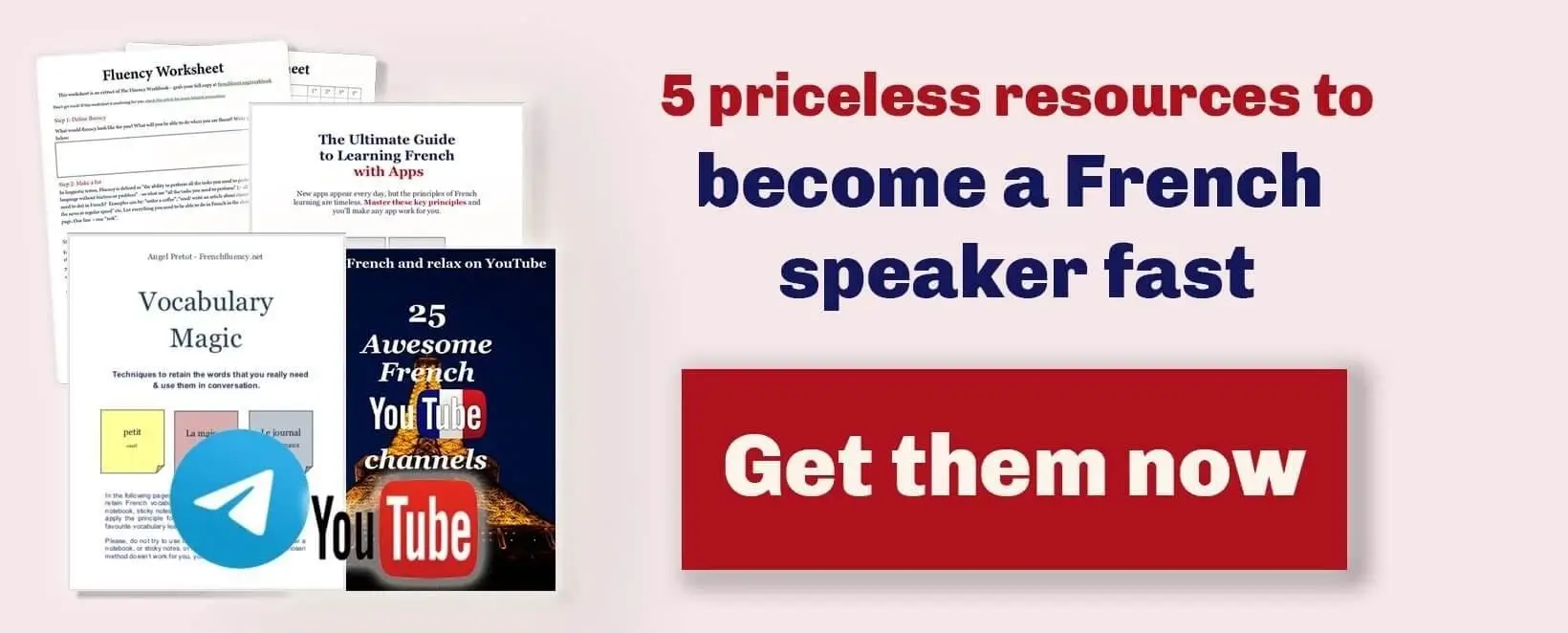
5. Practice in a safe space.
The first 3 steps help you acquire passive knowledge or the French language. If you follow the first 3 steps you can become able to understand anything you want in French, but you won’t be able to speak.
Step 4, safe practice, is when you learn to speak (or write) and change your passive knowledge into active knowledge.
So you can see that practicing is very critical.
Some very courageous people do manage to learn a language without having a safe space for it (typically because they don’t have a choice. It was the case for me when I first moved to a German-speaking country).
However, I have coached hundreds of French learners and I can’t insist enough on the value of practicing in a safe space.
To try and express yourself in a new language which you don’t master yet is a very vulnerable experience.
If you fear that other people will judge you or that some bad consequences will happen as a result, it will be very difficult for you to get out of your comfort zone and express yourself as much as you can.
Hence why I insist on providing a safe space for students to practice, both in 1-1 coaching and in my group program the French Fluency Accelerator.
Being certain that you will actually be supported will allow you to make progress a lot faster.
So make sure you only practice with people who have your best interest at heart, or at least in situations where there won’t be any negative consequence for you if you “say the wrong thing”.
Those are the four steps that will help you learn French or any language fast.
I have two more recommendations, specific to the French language.
These are the two things that trip my students up the most, even at intermediate levels. You can save yourself a lot of trouble by taking them into account from the get go.
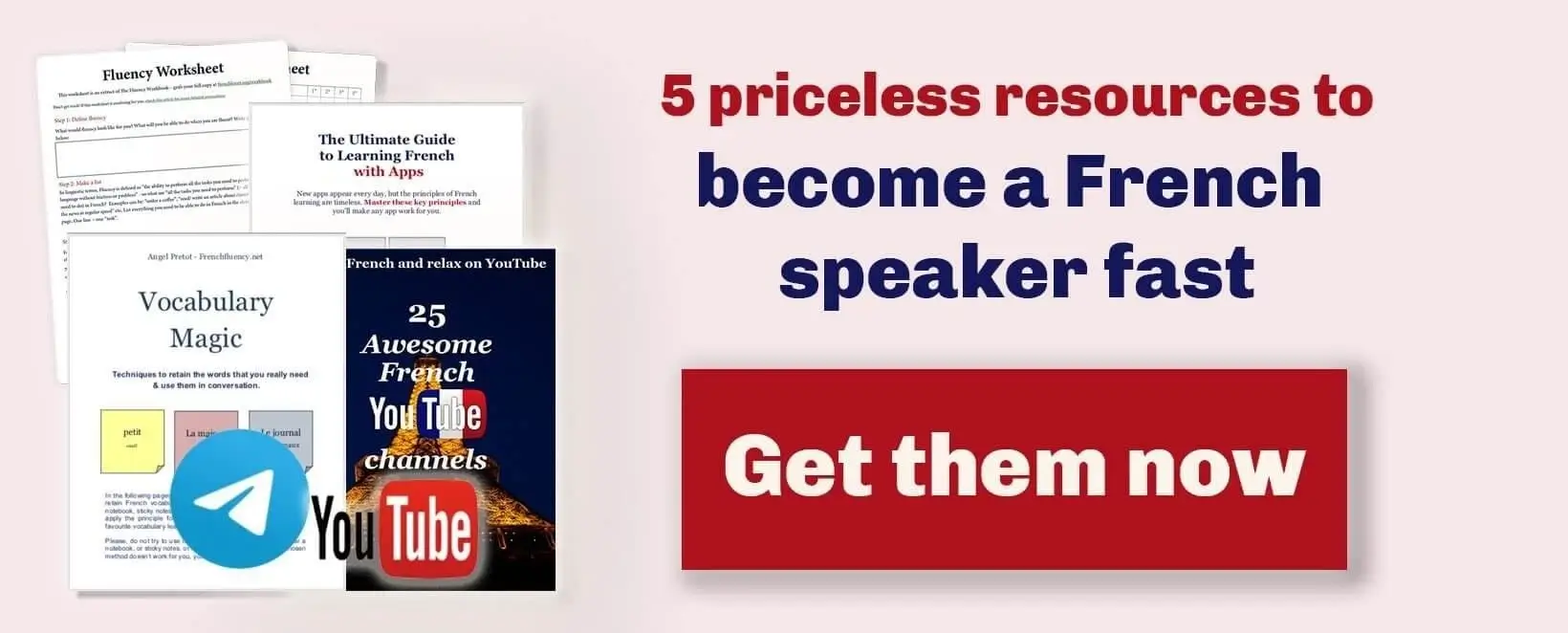
6.Genders are more important than you think
French genders are easy to overlook because, in English grammar, gender really isn’t a big deal. The only grammatical gender features are really the pronouns “he/him/his” and “she/her/hers”.
In French, however, every noun has a gender.
Worse, a noun’s gender affects its corresponding articles, adjectives, pronouns & even sometimes verbs.
So if you know a noun but not its gender, you don’t stand a chance to use that noun correctly.
It is often not possible to guess a noun’s gender if you haven’t learned it from the start.
Sometimes the ending will give out the gender ( 37 endings will give you the gender of 13 000+ nouns - I have gathered all of them in this video, which you can use to learn all gendered endings).
Unfortunately, these rules have exceptions too, and for all the other nouns you’ll have to learn the gender sooner or later.
As a beginner, you’ll likely feel that genders are unimportant, and maybe your teacher won’t insist on it either.
But if you don’t learn genders from the get go, you’ll have to learn them at the intermediate level. It will feel like you have to learn all the words all over again instead of making more progress. This is really frustrating. So, do yourself a favour and learn the gender along with any noun, the first time you see it.
7. Verbs will be a pain if you don’t address them the right way
Every French learner who’s past the beginner stages knows that French verbs aren’t to be taken lightly.
In fact, in the French Fluency Accelerator, we have three workshops about French verbs, each of them over 60 minutes long, and several more are planned.
And like for nouns, there is a way to address verbs from the get go that will ensure you’ll be able to learn them smoothly and efficiently.
Here’s what you need to know about French verbs:
- There are a lot more conjugations in French than in English
- Not all verbs conjugate in the same way, but they aren’t all different either.
- Each verb conjugates according to a “type”, typically another verb that ends in a similar way.
- There is a limited number of “verb types”, and you can learn these.
The one critical key : when you learn a verb, you need to know which types it belongs to.
Insider tip:
There is a secret book that all French people and only French people know about: the Bescherelle (named after its original author).
This book lists all the verbs in the French language, gives you their types and tells you everything you can ever want to know about their conjugation. Here is a video were I show you how to use it:
I recommend this book to all my students. It’s the secret weapon against French verbs when you feel they are out of control.
Enjoy the journey
I know many of these are easier said than done, and it’s all a process.
If you strive to do all these things, you ensure that you’ll have a much smoother journey than if you ignore them.
Make sure you download my free French Fluency starter kit to stay on track.
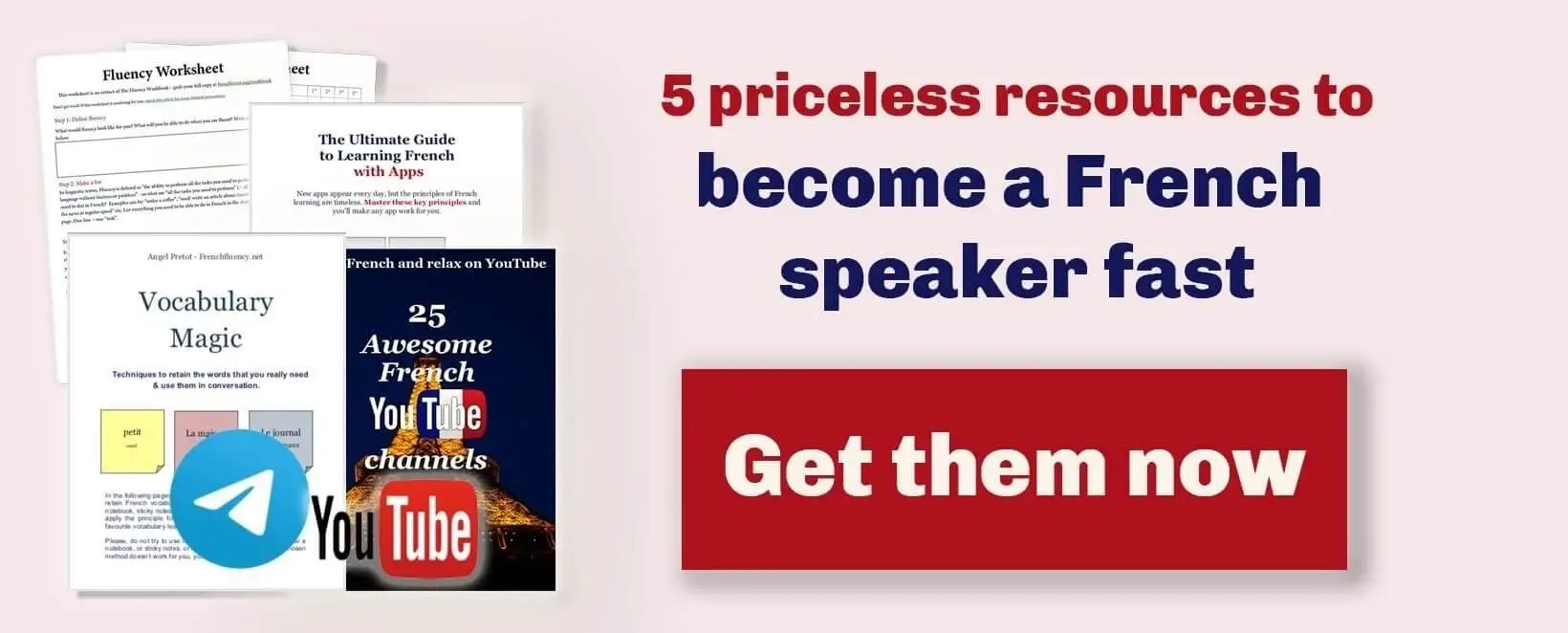
Your next steps
If you like this way of learning French, you will love to learn with me as a student or client. Please check out:
- My 1-1 coaching program, The French Transformation, if you need to improve your French fast.
- My group program, The French Fluency Accelerator, if you’d like to join a community of students from all over the world. We have weekly practice calls together and the best online video library to learn French.
Pro tip: you don’t need to choose!
All my 1-1 clients are invited to join the French Accelerator free of charge.
Feel free to book a call with me now to discuss options.
If you liked this, here's some more:
French pronunciation guide for beginners - greetings and honorifics

How can you tell a French noun's gender?

About the Author
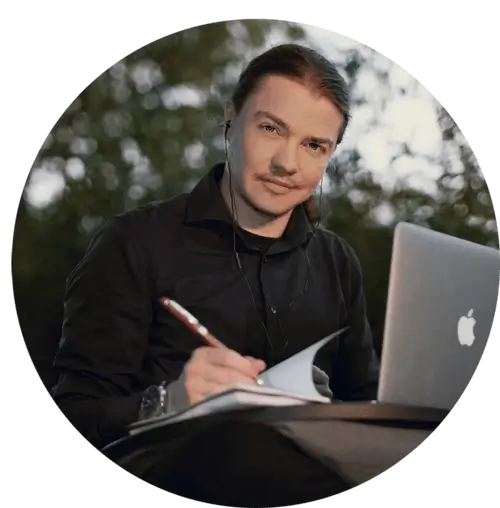
Angel Pretot is a French learning coach. He works online with English speakers from all over the world, helping them learn French fast and become fluent.
You can work with him, in his one-on-one program the French Transformation, or join a global community of French learners in his group program the French Fluency Accelerator.